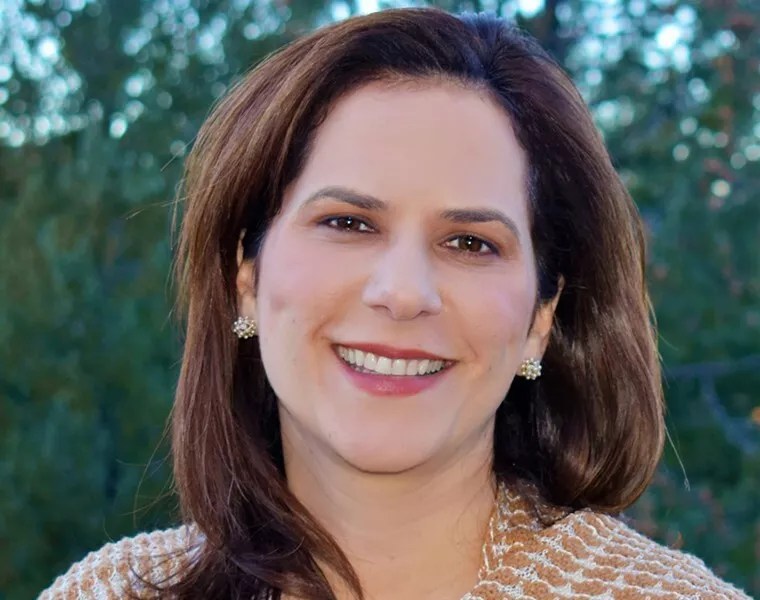
Karlee Escobar/Ramirez Hospitality Group

Audio By Carbonatix
On January 24, HB23-1118: Fair Workweek Employment Standards landed like a stink bomb on the local restaurant industry when it was introduced in the Colorado Legislature. This early in the process, the current language is subject to change, but the meat of the proposal would require retail and food and beverage establishments with more than 250 workers to post shifts fourteen days in advance.
Any changes after the fourteen-day threshold would require written documentation for the worker and predictability pay from the employer. As the bill stands, the predictability rate would be an extra hour of pay for when a shift is changed by increasing hours, and two hours of predictability pay if the shift is decreased.
“I’ve heard from communities across the state that workers are having a really difficult time in terms of being able to get scheduled in a consistent manner, and we’re also hearing pretty clearly from employers that they are having real difficulties in attracting workers and maintaining that workforce,” explains Senator Julie Gonzales, who’s sponsoring the bill along with representatives Emily Sirota and Serena Gonzales-Gutierrez, and Senator Faith Winter, all of whom are Democrats. “That’s really what the root of this Fair Workweek bill is about. How do we create some transparency, some clarity for both the employer and the worker in order to create a better environment for everyone involved?”
Sirota, the main architect of the bill, did not reply to a request for comment. Gonzales, however, describes a two-year process that involved collecting comments from a broad coalition of organizations, including 9 to 5 Colorado, Colorado Working Families Party, Colorado People’s Alliance, labor unions and economic justice organizations.
One organization that was not consulted during the stakeholder process: the Colorado Restaurant Association. “The first time we had seen the bill was on January 3,” says Sonia Riggs, CEO of the CRA. “So we basically had 24 hours to digest and review” before meeting with legislators the next day. Not only was the CRA frustrated at being left out of the stakeholder review process, but the group is still concerned about the vagueness of the language regarding who counts as a worker against the 250-worker threshold, which could lead to the proposal impacting restaurants that many Coloradans consider small, independent eateries.

Sonia Riggs, president and CEO of the Colorado Restaurant Association.
CRA
HB23-1118 “is saying if you have janitorial staff that comes and cleans your restaurant at night, they’re now counted as part of your employees. If you have part-time or temporary employees who are filling in when you have somebody on maternity leave or sick leave, they’re now counted as part of your staff,” explains Riggs. “Three part-time people who work fifteen hours a week each because they want to work fifteen hours a week for flexibility, or they’re going to school, or they just want to pick up a couple of shifts on the weekend – that’s now three employees.”
Juan Padró, the CEO of Culinary Creative Group, which has eleven concepts in Denver, including Bar Dough, A5 Steakhouse, Aviano and Mister Oso, sees this bill as a death blow for small businesses. “You’re saying 250 employees equals a chain, that’s like four restaurants. That’s not a chain. So now you’re dis-incentivizing growth,” he says.
As an example, he points to a thirty-person small business, “like a coffee shop. That’s a start, a stepping stone…[but] nobody’s going to last for forty years with a thirty-person coffee shop. They’re going to need to open three or four, and then maybe do a different business. Now they can’t because of this stupid threshold. They just can’t afford to do this.” And Padró knows his coffee shops: Aviano got its start as an independent before Culinary Creative took it over.
“My wife and I would love to grow into another location,” says Paul Sullivan, who co-owns Esters Neighborhood Pub with his wife, Emily Brown. Esters currently has three locations with approximately 200 employees, and if HB23-1118 passes, the couple will likely hold off on any further expansion. “We cherish our co-workers and would be nowhere without them. And we work our butts off to make sure we can do every single thing for them,” he adds. “But the guidelines and restrictions that this bill lays out would just be too big to actually implement and execute correctly. It creates a lot of burdens for small businesses in Colorado, hinders growth overall, and then opens us up to petty litigation.”

The original Esters opened in Virginia Village in 2015.
Esters/Facebook
Padró agrees. “I won’t sign [another deal] moving forward if this passes, and I will completely focus on out-of-state,” he says. “I fielded eight to ten calls this week from some of the most prominent restaurateurs in our city, who are asking if I will take over their restaurants because they can’t afford to do business in Denver anymore. Some want to move out of state. Some are just distraught, some are in tears. Some are just pissed.”
If the bill passes and becomes law, some restaurant owners say they would need to hire a full-time HR staffer just to manage and handle the additional paperwork that would be required to be compliant.
For Los Dos Potrillos, which currently has over 350 workers, the entire operation would need to change. The former hole-in-the-wall Mexican restaurant in Centennial has grown to four locations, but the business is still run like a family. Every week, the schedule is posted on a bulletin board, and workers swap shifts through a WhatsApp group chat. “A lot is going to change. It’s the scheduling, it’s the ability to hire more people, the margins, bonuses for my management. There’s a lot that’s going to happen if it does pass,” says Daniel Ramirez, co-CEO with his brother, Luis, of Ramirez Hospitality, founded by their father in 2002.
Then there’s the almost-impossible task of locking in shift schedules fourteen days in advance, with a heavy cost for changes. “What happens if there’s a blizzard? We’re in Colorado, and we’re sitting here paying people with no income coming in?” asks Padró. “What happens if the Denver Nuggets go to the NBA finals and you staff up for a seven-game series and it’s over in four?”
The flexibility to be reactive to real-time events is important to employees, as well. All of the restaurateurs Westword spoke with insist that for their workers, especially students and mothers, flexibility is a key benefit of working in the hospitality industry. Because the bill penalizes dropping hours more than adding hours, it could also incentivize restaurants to lean toward understaffing. “You know people have been complaining about customer service since the pandemic, and that hasn’t gone away, because we can’t find enough employees,” Riggs says. “This is going to make that worse. It’s going to hurt employees because it’s going to force operators to reduce flexibility for fear of penalties and lawsuits.”
According to Sullivan, the bill would remove one of the hospitality industry’s competitive advantages in a tight labor market, where restaurants that schedule reliably and fairly are more likely to attract workers than other businesses.
But Gonzales and her co-sponsors view that opinion as naive and idyllic. “During the pandemic, restaurant workers and food and beverage workers were deeply impacted, as were the businesses. We’ve learned that there are different ways to do things, so let’s embrace these new opportunities to create new scheduling practices,” Gonzales says. “We’re not the first jurisdiction to do this. We’re learning from other places across the country that have already implemented these types of policies. So what this legislation really specifically would do is protect workers who are employed by large employers.”

State Senator Julie Gonzales is a sponsor of the bill.
Julie Gonzales Facebook
But the mention of the pandemic particularly incites Riggs. “A recent survey that [the CRA] did said there’s an average of $180,000 in pandemic-related debt,” she notes. “The state legislature, knowing this, gave sales taxes back to restaurants to try to help in some small way. Now, a year later – and I guarantee that debt didn’t go away – [the legislators] are going to add more costs and more burden to this industry that’s already seen significant increases.”
The bill’s next official stop will be a hearing before the House Business Affairs and Labor Committee on February 16, where both sides expect some heated testimony.
For Padró, a lifelong Democrat who is the son of political activists and a friend of some of the bill’s supporters (they have good intentions, he says), the fact that this proposal is coming from his own party has been especially difficult to swallow. He prides himself on building an equitable business that provides equity to his chef-partners, allowing many female and minority chefs the opportunity to break the economic cycle and generate long-term wealth.
“I am more than happy to step away from my role for as long as it takes to sit with legislators and come up with a plan…to incentivize businesses to be equitable, to provide a salary, to provide a bonus, to provide a structure that allows for employee ownership,” he says. “Why the hell are you not including the business community in this conversation? It is completely irresponsible.”
Editor’s note: The story has been corrected to reflect the accurate predictability pay as stated in the bill as it is currently written.